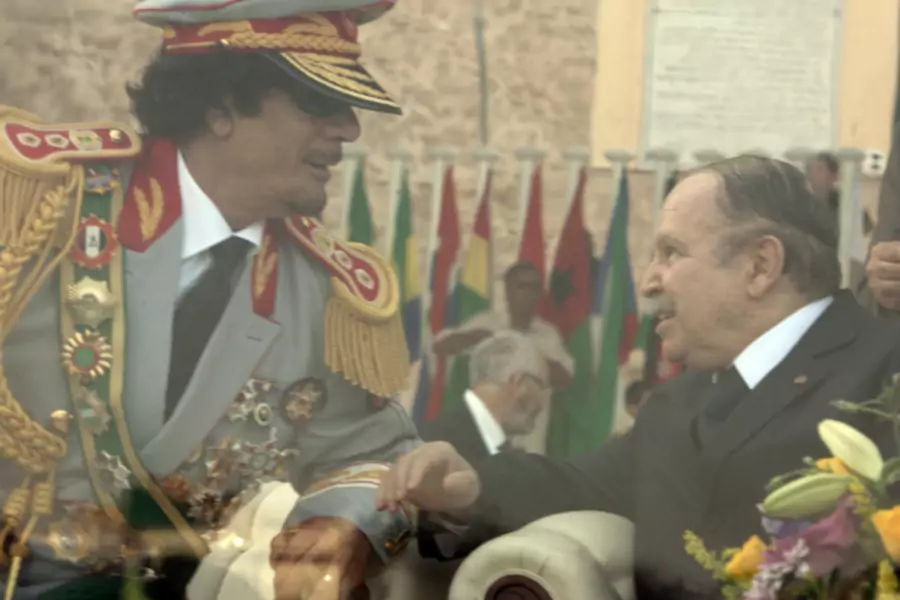Is Algeria the Next Crisis?

More on:
As the "Arab Spring" swept the fake republics of North Africa--Tunisia, Libya, and Egypt--Algeria seemed immune. Media reports dwelled on its stability (see this 2011 BBC and this 2012 Deutsche Welle story).
The question now is whether that perception is correct.
There was one burst of violence this year, the January 16 terrorist seizure of a natural gas facility that ultimately left at least 38 civilians and 29 terrorists dead after a four-day siege. But now there is more trouble: President Bouteflika appears to have had a stroke and has not been seen in public in over a month. The government claims he is recovering well, but there is no evidence to support that claim. As France 24 put it, "When he was appointed foreign minister in 1963 after Algeria won its independence from France, the 26-year-old Bouteflika cut a dashing, energetic picture as the world’s youngest foreign minister. Half-a-century later, the Algerian president is in frail health as he enters the final year of his third consecutive term in office."
The country has long been run by the opaque group of military and intelligence officials known as "le pouvoir," but can that system really hold? The nation is rich due to gas revenues, but the people are poor: foreign reserves are said to be $200 billion, but there is widespread rural poverty and high unemployment.
A persuasive analysis just published by the Atlantic Council is entitled "Algeria: A Powder Keg Ready To Explode?" Karim Mezran, the author and a senior fellow at the Council, says this:
Algeria may be teetering on the brink of a crisis, with the three pillars of the regime’s stability—its powerful military, abundant revenues from hydrocarbons, and the façade of a democratic political system—beginning to crumble.
First, the terrorist and security challenge is greater than it has been in years, as Algeria’s border with Mali reminds us. Second, "From a socioeconomic point of view, despite Algeria’s enormous wealth in oil and gas, the population suffers from poverty, unemployment, and citizen discontent." Then comes "a political crisis at the top of the state apparatus. The illness of Abdulaziz Bouteflika, President of Algeria since 1999, makes it highly unlikely that he will be able to run for another term with upcoming presidential elections in 2014. No clear procedure exists for the appointment of his successor, which leaves a vacuum at the pinnacle of political authority."
As Mezran notes, "It is hard to predict the outcome of the myriad of tensions that are boiling in the country. It is possible that the Algerian people, still fatigued from the bloody civil war of the 1990’s and conscious of the repressive power of the state choose not to confront the regime in any sustained or systematic way." Right--perhaps. As we’ve seen across the region, things are often far less stable than they appear. A recent Carnegie study notes this:
At first glance, Algeria gives the impression of a country that has succeeded in bypassing the turmoil of the Arab Awakening that has rocked the Middle East over the last two years. Social unrest appears to be largely under control. The country is enjoying a large current account surplus, a limited budget deficit, and very low external debt. Recent parliamentary elections were conducted without interruption and were officially open to participation by all political parties. But despite this reassuring veneer, many of the social, economic, and political challenges that triggered uprisings in neighboring North African countries fester just beneath the surface in Algeria.
The author, Lahcen Achy, concludes starkly that:
The clock is ticking. If the regime does not start down the road of managed political and economic reform soon, while it retains the cushion of high hydrocarbon rents, it will quickly become too late. Algeria is faced with a stark choice: reform now or collapse later.
But Le Pouvoir has never been inclined toward such reforms, especially not at a moment of political uncertainty--Bouteflika apparently quite sick, and an election next year without him on the ballot for the first time since 1999. So Algeria is worth more attention than it is getting. Its immunity to change may be wearing thin.
More on:
 Online Store
Online Store